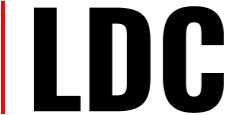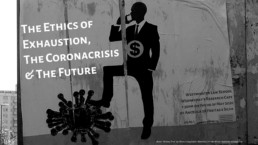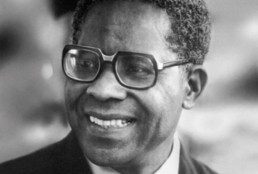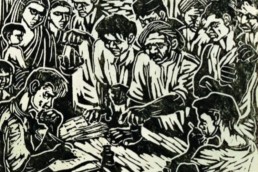THIRD WORLD IN THEORY READING GROUP
About the 2019-20 academic year
The Third World in Theory reading group (TWT) has resumed after a break following requests from many. The group focuses specifically on theoretical problems in analysing and understanding Third World societies which is the location of most development conflicts and much of the focus of international law, international relations and international development policies. The Third World in Theory reading group studies a diverse range of theoretical orientations and methodological approaches to problems of colonial and neo-colonial societies in different disciplines.
Decolonising the academia and academic curriculum has gained popularity in the UK and elsewhere in recent times with many universities setting up teaching and learning initiatives to decolonise their curriculum. Decolonising academia presupposes engagement with theories and histories that inform critique of colonialism and imperialism. In the academic year 2019-20 the Third World in Theory study group will revisit and analyse key classical texts by leading thinkers who have influenced national liberation struggles and map the transformations of ideas in more recent scholarship on colonialism.
Reading Group Calendar 2019 -2020
Angelica is a senior lecturer at UoW Business School of Applied Management and a PhD candidate at UoW Law School. Her research interests include decolonial epistemologies, energy and ecofeminism.
Recommended reading:
Césaire, Aimé. (1972). “Discourse on Colonialism.” New York: Monthly Review Press.
Additional Reading:
Maldonado-Torres, Nelson. (2007) “On the Coloniality of Being.” Cultural Studies 21, no. 2–3: 240–70.
Shailza is a qualified lawyer from India. She completed her masters in International Politics from SOAS and is currently enrolled for her PhD at University of Exeter.
Recommended reading:
Thomas Sankara (1988). Thomas Sankara speaks : the Burkina Faso revolution 1983-87, Pathfinder Press.
Dr Andy Higginbottom supports movements fighting extractivism, neocolonialism and oppression which he brings into his research in Marxist political economy and teaching at Kingston University.
Recommended reading:
Luxemburg, Rosa (2003). “The Accumulation of Capital” translated by Agnes Schwarzschild in 1951. Routledge Classics.
Amanda Latimer is an activist and graduate student whose work focuses on the crisis of labour globally, underdevelopment and imperialism. She teaches Latin American politics and international relations at Kingston University.
Recommended reading:
Quijano, Aníbal (1971). “Nationalism and Capitalism in Peru: A Study in Neo-imperialism.” New York. Monthly Review Press.
Additional Reading:
Ruy Mauro Marini (1972). “Brazilian Sub-imperialism.” Monthly Review 23:9 14-24.
Carlos Cruz Mosquera is an activist, member of the editorial board of the Journal of Labour and Society, has recently published a biographical entry for José Carlos Mariátegui in the 2nd edition of the Encyclopaedia of Imperialism and Anti-imperialism, and has recently completed an MRes in Latin American Studies at the Institute of Latin American Studies.
João Carvalho is a popular educator, activist and podcaster. He has completed his Ma in Social History at the University of São Paulo and is currently a PhD candidate in Cultural Social History at the University of Minas Gerais where he researches the works of Frantz Fanon and its relations with the anticolonial processes of Africa and Asia.
Recommended reading:
Mariátegui, José Carlos (1988). “Seven Interpretive Essays on Peruvian Reality.” University of Texas Press.
Connor Hayes is a graduate student in Sociology researching the Kurdish Freedom Movement. His other research interests include philosophy and comparative political theory.
Recommended reading:
Smith, Linda Tuhiwai. 2013. Decolonizing Methodologies: Research and Indigenous Peoples. Zed Books Ltd.
Dr Adrija Dey is currently a British Academy post-doctoral research fellow at the SOAS South Asia Institute and Department of Development Studies. Her research is titled Gender Based Violence in Indian Universities: A Study of Campus Life, Student Activism, and Institutional Responses.
Recommended reading:
Spivak, Gayatri Chakravorty (1999). “A critique of postcolonial reason: toward a history of the vanishing present.” Cambridge: Harvard University Press.
Cengiz Gunes currently an Associate Lecturer and an Honorary Research Associate in Politics at the Open University, UK. His main research interests are in the areas of autonomy and the accommodation of minorities, peace and conflict studies, the Kurds in the Middle East, the international relations of the Middle East and Turkish politics.
Recommended reading: Abdullah Öcalan (2017). “The political thought of Abdullah Öcalan: Kurdistan, women’s revolution and democratic confederalism.” Translated by Havin Guneser, London Pluto Press.
Kevin Ochieng Okoth is an independent writer and researcher living in London. He holds an MPhil in Political Theory from the University of Oxford and writes on imperialism and 20th century anti-colonial struggles.
Recommended reading:
Wilderson III, Frank B (2014). “The Black Liberation Army & the Paradox of Political Engagement” in Postcoloniality – Decoloniality – Black Critique: Joints and Fissures, edited by Sabine Broeck, Carsten Junke. Frankfurt: Campus Verlag GmbH.
Additional reading:
Frank Wilderson III (2003). “Gramsci’s Black Marx: Whither the Slave in Civil Society?” Social Identities, 9:2, 225-240.
Radha D’Souza ‘s research interests include social theory and comparative philosophy. She writes on law, development, colonialism, imperialism. She is author of ‘Whats Wrong With Rights? Social Movements, Law and Liberal Imaginations’ (2018) and ‘Interstate Disputes Over Krishna Waters: Law, Science and Imperialism’ (2006).
Recommended reading: Uberoi, J.P.S. (2002). “The European Modernity: Science, Truth and Method.” New Delhi: Oxford University Press.
Additional reading: A.K Ramanujan (1989). “Is there an Indian Way of thinking?” Contributions to Indian Sociology; 23; 41.
TWT BLOG
The TWT Blog provides information, updates and articles by TWT contributors. Each meeting is followed by the publication of a text with impressions and thoughts about the proposed readings.
Aimé Césaire and the Coloniality of Being
March 10, 2020
This text is the follow-up of the first meeting of the Third World in Theory Reading Group in the 2019-2020 academic year, that took place on the 10th of October 2019. Since then, we’ve had six…
Welcome to the Third World in Theory blog!
October 2, 2019
This is a platform for us to establish a direct dialogue with everyone interested in the reading group. Here we will post updates about our meetings and information about events...



